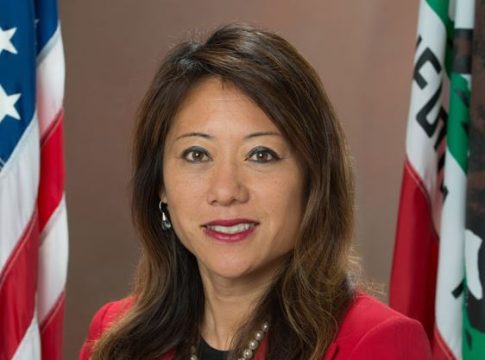by Akemi Tamanaha, Associate Editor
Many people believe that real-world experience is the best education. For Roshni Nedungadi, an experienced pollster who founded her own political research company, that real-world experience came just before her last year of college.
Nedungadi was studying political science at the University of Wisconsin-Madison when thousands of protestors began gathering in and around Wisconsin’s state capitol building in 2011. The protestors were taking a stand against then-Republican Governor Scott Walker’s Act 10, also known as the “Wisconsin Budget Repair Bill.” The bill restricted the ability of public employees to collectively bargain over rights like healthcare and pensions.
The bill ultimately passed but the demonstrations sparked a recall effort against Walker and several other state senators. Nedungadi took a year off of college her senior year to work on Kathleen Falk’s campaign for Governor.
“I got the campaign bug there, and kind of have continued on since then,” Nedungadi said in an interview with AsAmNews.
LATEST STORIES
In 2012, Nedungadi graduated with a combined degree in political science and math, communications and marketing. After a big move to the D.C.-area, she began working on Terry McAuliffe’s campaign for governor. Eventually, she began working for Brilliant Corners, a political strategist. She has been working in polling ever since.
Founding HIT Strategies
Nedungadi and her business partner Terrence Woodbury founded their own political research company, HIT strategies, in June 2019. The pollster said the pair was inspired by “the youth and minority anger toward the current political environment” which resulted in an increase in turnout for both groups.
“We wanted to be sure that they had more representation in research for democratic organizations and candidates.
HIT Strategies largely focuses on public opinion research that will improve outcomes for communities that the company refers to as “the emerging electorate.”
“So young people, people of color, women, LGBTQ essentially, parts of the electorate that have long gone ignored, but make up the backbone of the Democratic coalition,” Nedungadi said.
HIT is currently with a few campaigns including the mayoral races in Houston and Philadelphia. The company’s main focus, however, is providing research for “organizational clients” for “broader messaging projects.” The New Georgia Project, for example, worked with HIT to develop a better understanding of Black voters.
“Working with HIT has enabled NGP to become one of the preeminent organizations in Georgia conducting and utilizing research specifically focused on Black voters,” the organization said in a statement. “Without a doubt, HIT’s commitment, in particular, to conducting research on and with Black voters has contributed to our collective aim of increasing the civic participation of historically marginalized communities.”
Last year, HIT strategies also worked with the Democratic Congressional Campaign Committee on their efforts to reach out to AAPI communities.
Uplifting AAPI voices
A bulk of HIT’s research has gone towards analyzing and disaggregating data on AAPI voters.
“I think that we have a tendency to firstly kind of lump us all in together under this banner of Asian American,” Nedungadi said, “when there are really diverse viewpoints, depending on country of origin depending on age; depending on gender and education level.”
While viewpoints can be diverse, Nedungadi said the idea that AAPI voters are “more conservative than the general population” or may become more conservative is a “common misconception.”
“One of the things that we’re seeing really popping since the overturning of the Roe decision is just how supportive Asian American voters are of abortion access, especially Asian American women,” she said.
“Even Asian American women who consider themselves very religious, are very supportive of abortion access and further actually very supportive of women being able to make their own choices.”
According to Nedugandi, AAPI voters also have very progressive positions on issues like gun control, education and immigration.
“And so I would just encourage campaigns and candidates to not moderate their positions when they’re reaching out to API voters,” she said.
HIT strategies will continue working to disaggregate data on AAPI voters. Nedungadi said she is really looking forward to “digging into” what is driving AAPI voters to the polls in her research this year.


AsAmNews is published by the non-profit, Asian American Media Inc. Make a tax-deductible donation of at least $40 or pledge a monthly recurring donation of at least $10 by August 31 and receive a free copy of The Legend of Mu Lan: Heroine of Ancient China, the inspiration for the classic Disney movie. We are supported in part by funding provided by the State of California, administered by the California State Library in partnership with the California Department of Social Services and the California Commission on Asian and Pacific Islander American Affairs as part of the Stop the Hate program. To report a hate incident or hate crime and get support, go to CA vs Hate.










